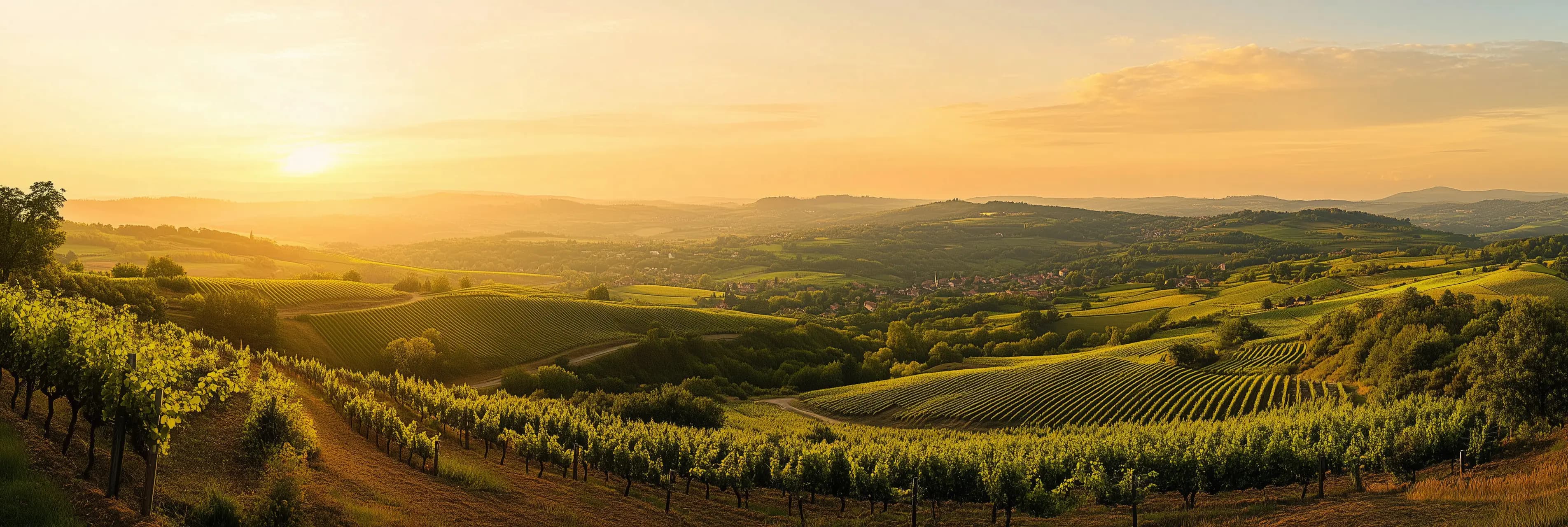Morgon’s secret: understanding the term "Morgonne"
Morgon, one of the ten crus of Beaujolais, stands out among the wines of this region for its ability to age and develop in a way that rivals some of the finest wines from Burgundy. So much so that the French have a term to describe the distinctive transformation of this wine over time: “morgonne”. But what does it mean for a wine to "morgonne"? And why is Morgon so unique among the Beaujolais crus?
In this article, we'll delve into the meaning behind this special term and explore how the terroir, climate, and winemaking practices of Morgon contribute to this transformation.
The terroir of Morgon: rotten rock with rich potential
The key to understanding Morgon lies in its terroir, particularly its famous "rotten rock", known locally as "roche pourrie".
This decomposed granite and schist soil is unique to the Morgon appellation and gives the wines their signature minerality and earthiness. Located on the slopes of Beaujolais, particularly around the Côte du Py, the vineyards benefit from excellent sun exposure and well-drained soils, which are crucial for producing structured and complex wines.
The climate in Morgon also plays a vital role. The warm, sunny slopes of Villié-Morgon, protected from harsh winds, provide an ideal environment for ripening the Gamay grape. This grape variety, which dominates the Beaujolais region, expresses itself differently in Morgon compared to the lighter, fruitier styles often associated with Beaujolais Nouveau.
What does it mean to "Morgonne"?
The verb “morgonner” is used by locals and wine experts alike to describe the way Morgon wines evolve with age.
While many Beaujolais wines are meant to be drunk young, Morgon has the structure and depth to improve over time. As it ages, the wine gains complexity, with the initial bright fruit flavors of cherry and raspberry giving way to richer, more developed notes of kirsch, plums, and sometimes even leather and spices.
The process of "morgonne" refers to this evolution, where the wine softens, its tannins become more integrated, and its flavors grow more nuanced. In a sense, "morgonne" embodies the transformation of a fresh, vibrant Beaujolais into something with the depth and sophistication of a fine Burgundy.
The characteristics of a Morgon wine
Morgon wines are often described as "fleshy", with a dense, chewy texture and a robust structure that sets them apart from other Beaujolais crus. They possess aromas of ripe cherry, plum, and kirsch, sometimes laced with a hint of earthiness and spice. These wines are known for their ability to age, with many bottles continuing to develop and improve over five to ten years—or even longer.
Morgon is often compared to Burgundy wines, not just because of its aging potential, but also because of the complex layers of flavors that emerge over time.
While Gamay may not be as widely celebrated as Pinot Noir, in Morgon, it achieves a similar level of elegance and depth, particularly from top sites like Côte du Py, Corcelette, and Les Charmes.
Ageing and pairing Morgon wines
One of the most appealing aspects of Morgon is its versatility.
These wines can be enjoyed young, when they offer vibrant fruit flavors and a refreshing acidity.
But for those who have the patience to wait, Morgon truly rewards cellaring. As it ages, it becomes smoother, more harmonious, and gains a remarkable depth that pairs beautifully with rich, hearty dishes.
Morgon wines are often paired with foods that have strong, earthy flavors to complement their depth and structure. Dishes like beef ribs, game, or even mushroom-based dishes work well with an aged Morgon.
For younger Morgon wines, lighter fare such as grilled white meats or charcuterie can provide a delicious balance
To "morgonne" is to witness the transformation of a wine from youthful exuberance to mature elegance, a process that is both unique and essential to the Morgon appellation. The combination of terroir, climate, and winemaking practices in Morgon gives rise to wines that not only express the essence of Beaujolais but also demonstrate how much more the region has to offer beyond its famous Beaujolais Nouveau.
Whether you choose to drink it young or lay it down for a decade, Morgon is a wine that captures the spirit of Beaujolais in its most powerful form—one that only gets better with time.

